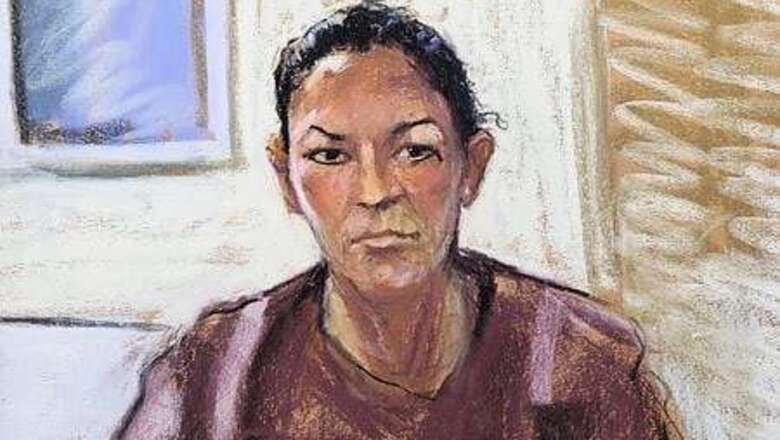
views
NEW YORK: A woman who said she was a victim of Jeffrey Epstein’s sex trafficking told a U.S. appeals court that Ghislaine Maxwell’s desire for privacy failed to justify the continued sealing of a deposition that the British socialite has fought to keep out of the public eye.
Lawyers for Virginia Giuffre made the argument in a Wednesday filing with the 2nd U.S. Circuit Court of Appeals, ahead of Sept. 22 oral arguments over the release of materials from her now-settled defamation lawsuit against Maxwell.
Many documents from that case were unsealed in July, and Maxwell is appealing U.S. District Judge Loretta Preska’s order to release other materials, including her April 2016 deposition and a deposition by a second Epstein accuser.
“Maxwell’s vague argument about privacy interests cannot justify total closure of the deposition materials,” and overcome “the public’s presumption of access,” Giuffre’s lawyers Sigrid McCawley and David Boies told the Manhattan-based appeals court.
Lawyers for Maxwell did not immediately respond to requests for comment.
Maxwell, 58, has pleaded not guilty to helping Epstein recruit and eventually abuse three girls from 1994 to 1997 and to committing perjury by denying her involvement with the late financier under oath.
Her trial is scheduled for next July. Epstein killed himself at age 66 in August 2019 at a federal jail in Manhattan while awaiting trial on sex trafficking charges.
Maxwell has said her deposition contained “intimate, sensitive, and personal information,” and whose release would cause irreversible, negative publicity.
She said this would undermine her constitutional rights to remain silent and obtain a fair trial by an impartial jury, outweighing any presumption of public access.
But lawyers for Giuffre, who has said Epstein kept her as a “sex slave” with Maxwell’s assistance, said Maxwell did not meet the high legal hurdle of showing Preska abused her discretion.
The lawyers said an unsealing would not compel Maxwell to make self-incriminating statements, saying that she “was deposed twice in 2016, and twice at that time failed to invoke her right to remain silent.”
They also said there was no basis to credit Maxwell’s “speculative” fear of unfair pretrial publicity and a tainted jury pool, especially in large metropolitan areas such as New York.
“The size and heterogeneity of such communities make it unlikely that even the most sensational case will become ‘a cause celebre’ where the whole community becomes interested in all the morbid details,” Giuffre’s lawyers said, quoting a decision from another federal appeals court.
The Miami Herald also wants Maxwell’s deposition unsealed.




















Comments
0 comment